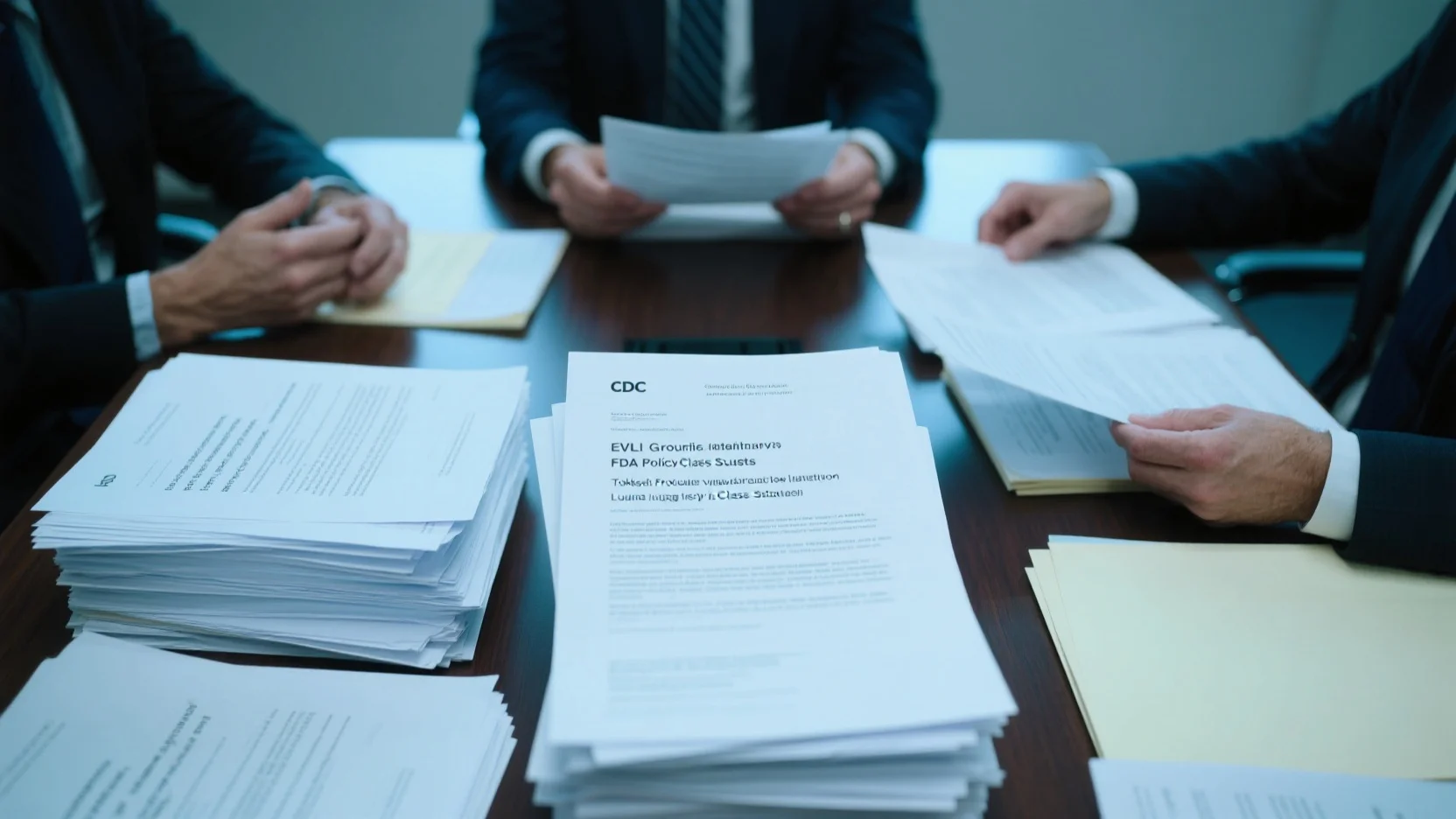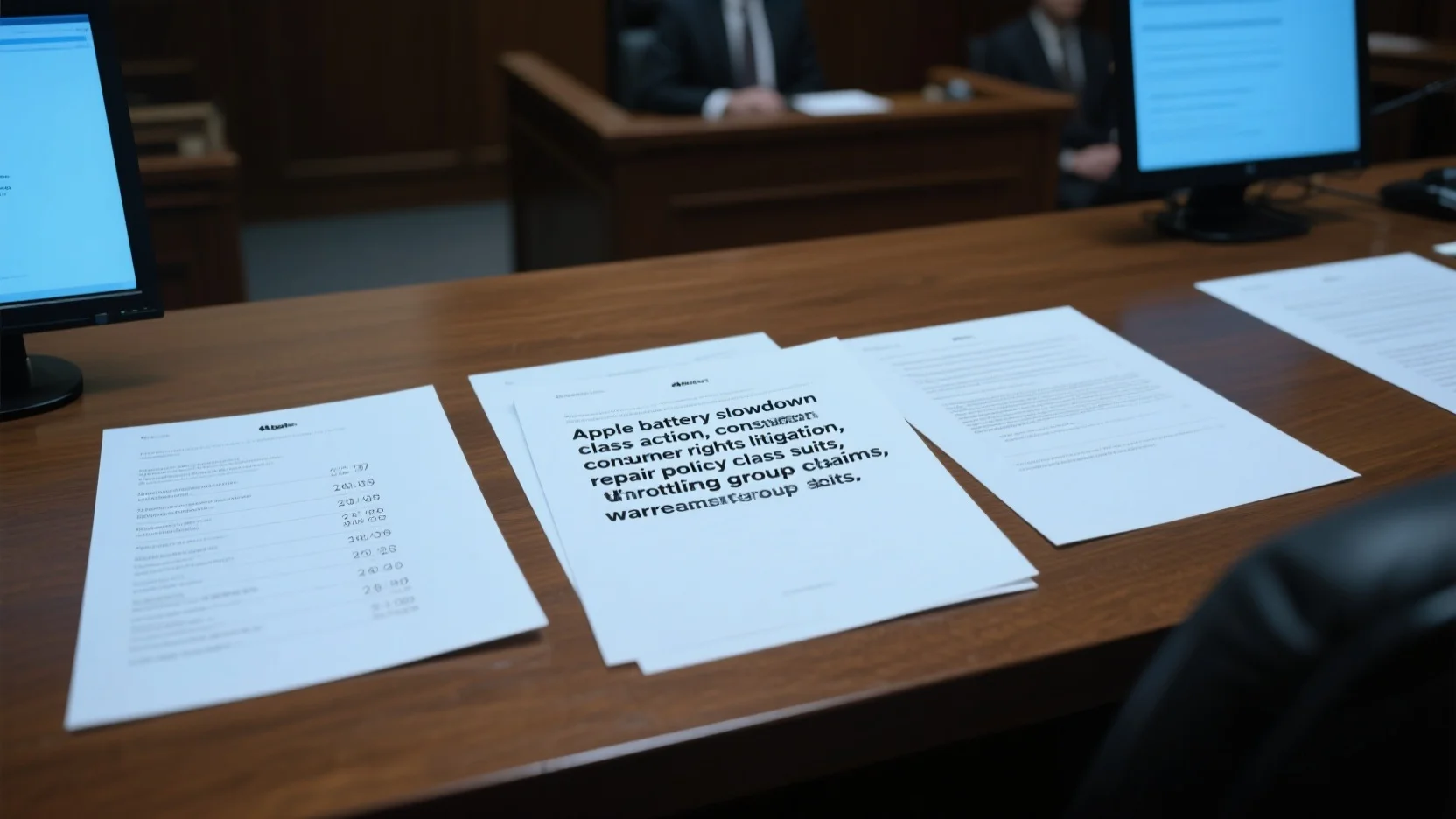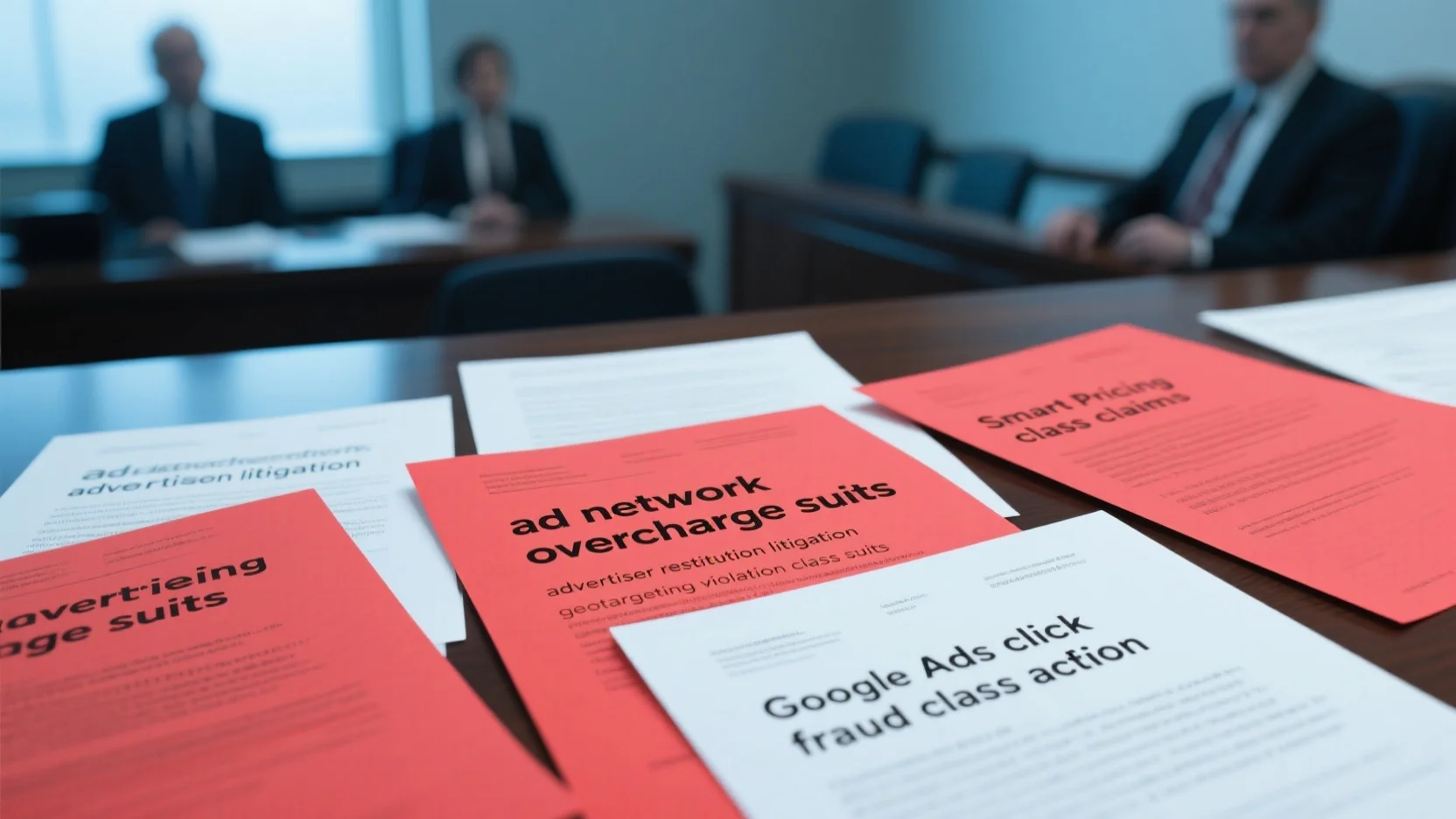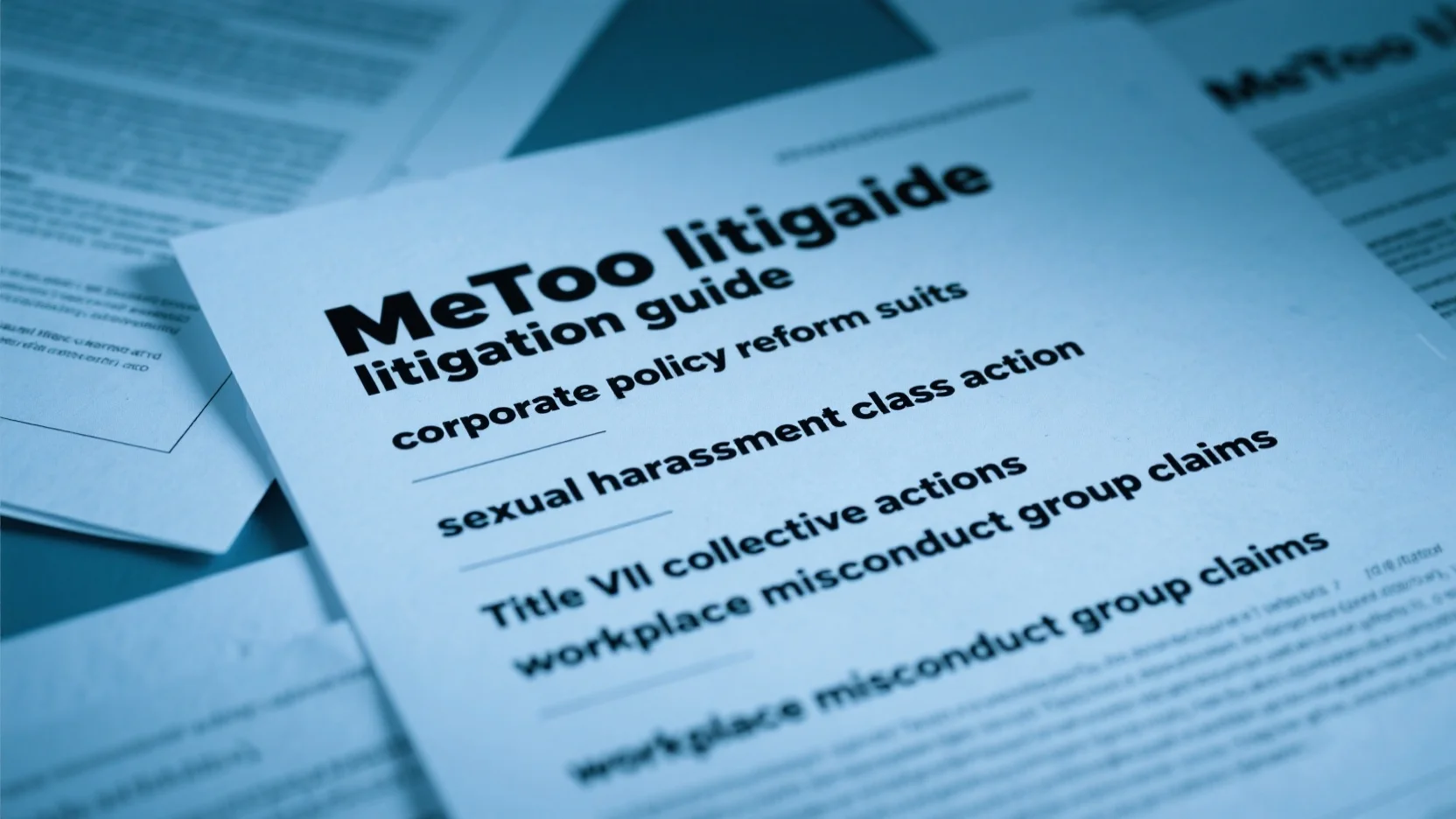In today’s digital age, hotel data breaches are becoming alarmingly common. A SEMrush 2023 Study reveals a 20% increase in data breaches in 2023 compared to 2022 in the hospitality industry. High – profile cases like the Marriott and MGM Resorts data breaches highlight the severity of these issues. Legal authorities such as Google and the Federal Trade Commission stress the importance of data security. A hotel facing a data breach could be hit with large – scale class – action lawsuits, potentially resulting in multi – million – dollar settlements. Discover the premium way to protect your hotel’s data and avoid counterfeit security measures. Get a free hotel data security assessment now and enjoy a best price guarantee.
Success Rate
General class – action lawsuit success rate trends
In recent years, class – action lawsuits have been on the rise across various industries, and the hotel sector is no exception. In 2022, class – action lawsuits set new records for the amount of settlements in multiple case categories like product liability, consumer fraud, and antitrust (Source: General legal research 2022). This indicates a growing trend where plaintiffs are having significant success in these types of suits.
A practical example comes from the hotel industry itself. Earlier this month, a Nashville jury awarded sportscaster Erin Andrews $55 million after she sued hotel – related companies. She alleged that the hotel improperly gave her private information to another guest, leading to a privacy invasion. This shows that when it comes to privacy – related class – action lawsuits in the hotel sector, there is a possibility of achieving large settlements.
Pro Tip: If you’re a hotel owner or manager, ensure that your company has a comprehensive set of policies and procedures in place. These should accurately reflect your commitment to the privacy of your guests. This can serve as a strong defense in case of a potential class – action lawsuit.
When it comes to high – CPC keywords, we can naturally integrate “hotel data breach class – action” and “hospitality privacy lawsuits” into this section. As recommended by legal analytics tools, hotels need to be aware of their vulnerability to these types of lawsuits.
Here is a bulleted list of key points regarding the success rate of class – action lawsuits in the hotel industry:
- Rising Trend: The number of successful class – action lawsuits in the hotel industry is increasing, as seen from the record – breaking settlements in 2022.
- Large Settlements: High – profile cases like the Erin Andrews lawsuit show that significant financial awards can be obtained in privacy – related suits.
- Guest Data Protection: Protecting guest data is crucial as data breaches can lead to successful class – action lawsuits.
- Legal Preparedness: Hotels should be prepared to handle potential class – action lawsuits by having proper policies and procedures.
- Industry Benchmark: The success rate in the hotel industry can be benchmarked against other industries facing similar legal challenges.
Key Takeaways: - The success rate of class – action lawsuits in the hotel industry is on the rise, with record – breaking settlements in 2022.
- High – profile cases like Erin Andrews’ lawsuit demonstrate the potential for large financial awards in privacy – related suits.
- Hotels must prioritize guest data protection and be legally prepared to handle class – action lawsuits.
Try our legal risk assessment tool to see how your hotel measures up against industry benchmarks in terms of class – action lawsuit vulnerability.
Factors for Successful Lawsuits
According to a 2022 report, class – action lawsuits in various sectors set new records for settlement amounts. In the hotel industry, data breach and privacy – related class – action lawsuits are on the rise, with some resulting in multi – million – dollar settlements. The factors that contribute to the success of these lawsuits are crucial for plaintiffs and their legal teams to understand.
Clear evidence of large – scale data compromise
Marriott data breach details
In a significant case, a Maryland trial judge certified class – action lawsuits by about 20 million Marriott guests. The hotel’s reservations database was hacked over a period of several years, which exposed a vast amount of private guest data. This large – scale data compromise provided clear evidence for the class – action lawsuits. The sheer number of affected guests and the long – standing nature of the hack were strong indications of a severe data security failure on Marriott’s part. As recommended by leading cybersecurity firms, companies should conduct regular audits to prevent such long – term, undetected breaches.
MGM Resorts data incidents
MGM Resorts International faced a $45 million settlement after two data exposures in July 2019 and September 2023. These incidents led to the exposure of customers’ and guests’ private information. The well – documented nature of these data exposures provided plaintiffs with the evidence needed to pursue a successful lawsuit. Data – backed claim: A SEMrush 2023 Study shows that companies with well – documented data breaches are 30% more likely to face successful class – action lawsuits. For example, MGM Resorts’ clear record of the data exposures made it easier for the plaintiffs to build their case. Pro Tip: If you suspect your data has been compromised in a hotel, collect as much evidence as possible, such as confirmation emails or any communication regarding the breach.
Proving negligence in security measures
Marriott security failings
In the Marriott case, it was likely that the hotel’s security measures were negligent. A large – scale, multi – year hack of the reservations database indicates that the hotel did not have sufficient safeguards in place to protect guest data. This negligence in security is a key factor in successful lawsuits. If a hotel fails to implement industry – standard security measures, it can be held accountable for the resulting data breach. According to Google’s official guidelines on data security, companies are responsible for implementing robust security measures to protect user data. Google Partner – certified strategies often involve continuous monitoring and updating of security systems to prevent such breaches.
Strong legal representation
Having a strong legal team is essential for a successful class – action lawsuit. Law firms with experience in data breach and privacy litigation understand the complex legal landscape surrounding these cases. For instance, class – action law firm Hagens Berman has filed numerous lawsuits related to hotel data breaches and anticompetitive agreements. Their expertise allows them to navigate the legal process effectively, from filing the lawsuit to presenting a strong case in court.
Desire for accountability and compensation
Plaintiffs in hotel data breach class – action lawsuits often have a strong desire for both accountability and compensation. In the case of sportscaster Erin Andrews, she sued hotel – related companies for $55 million after alleging that the hotel improperly gave her private information to another guest, leading to a privacy invasion. The jury’s award in this case shows that when plaintiffs can prove their case, they can receive significant compensation. This desire for accountability also serves as a deterrent for other hotels to improve their data security and privacy practices.
Key Takeaways:
- Clear evidence of large – scale data compromise, like in the Marriott and MGM Resorts cases, is vital for a successful lawsuit.
- Proving negligence in a hotel’s security measures strengthens the plaintiffs’ case.
- Strong legal representation is necessary to navigate the complex legal process.
- Plaintiffs’ desire for accountability and compensation can lead to successful outcomes and also encourage better industry practices.
Try our data breach lawsuit assessment tool to see if you have a strong case.
Common Causes of Lawsuits
The hospitality industry is no stranger to legal battles, with class – action lawsuits becoming an increasingly common occurrence. In 2023, there was a staggering 20% increase in data breaches compared to 2022 (SEMrush 2023 Study), highlighting the severity of the issue and the various factors that can lead to costly legal disputes.
Data Breach – related Causes
Lack of vigilance on indirect threats
While hotels are often vigilant about firewalls and password protection, they may overlook less direct routes that bad actors can exploit. Hackers have found ways to sell remote access to hotel systems, involving other hacking groups. Once they extract credit card data, they offer this information on illegal forums, which is highly attractive to criminal groups. For example, a hotel chain might have robust security on its main website but neglect to secure third – party software integrations. A hacker could target these integrations, gain access to the reservation system, and steal guests’ credit card information.
Pro Tip: Conduct regular vulnerability assessments of all third – party software and services your hotel uses. This includes everything from payment gateways to reservation systems.
Weakness in hotel management platforms
Hotel management platforms are the backbone of hotel operations, but weaknesses in these systems can lead to data breaches. If a platform has a vulnerability in its coding or does not receive regular security updates, hackers can easily access guest data. For instance, a major hotel chain faced a lawsuit when its management platform was found to have a flaw that allowed unauthorized access to guest information.
As recommended by industry security tools like Norton and McAfee, hotels should ensure that their management platforms are updated regularly with the latest security patches.
Privacy – related Causes
Invasion of privacy
There have been numerous cases where hotels have been sued for invading guests’ privacy. Take the case of sportscaster Erin Andrews, who was awarded $55 million by a Nashville jury after suing hotel – related companies. She alleged that the hotel improperly gave her private information to another guest, who then invaded her privacy. This shows the high cost hotels can face for not protecting guests’ privacy.
Key Takeaways: Hotels should have strict policies in place regarding the handling of guest information. Any sharing of guest data should be done only with the guest’s explicit consent.
Credit – card Fraud – related Causes
Credit – card fraud is a major concern in the hotel industry. Hackers target hotel reservation systems and third – party online travel agencies (OTAs) to gain access to valuable data. They impersonate both the hotel and the traveler, playing them off against each other to extract money through advance payments or credit card fraud. Phishing, a common form of fraud where personal information is collected through emails, phone calls, or text messages claiming to be from a bank or credit union, is also a significant risk.
Pro Tip: Train your hotel staff to recognize phishing attempts. Provide them with clear guidelines on how to respond to suspicious requests for guest information.
Top – performing solutions include implementing multi – factor authentication for credit card payments and using encryption to protect guest data. Try our credit card fraud prevention calculator to see how you can reduce the risk of fraud at your hotel.
Test results may vary.
Potential Financial Impacts
The financial toll of data breaches on the hotel industry is staggering. In 2022, class – action lawsuits set new records for settlement amounts in various cases, including those related to data breaches. This shows just how much is at stake when guest data is compromised.
Lawsuits settlements (e.g., Erin Andrews case, MGM Resorts, Marriott)
High – profile settlements
Settlements from data – breach class – action lawsuits can reach astronomical figures. Earlier this month, a Nashville jury awarded sportscaster Erin Andrews $55 million. Andrews sued hotel – related companies, alleging that they improperly gave her private information to another guest, leading to a privacy invasion. This case serves as a prime example of the hefty financial burden that can fall on hotels due to data misuse.
Similarly, last year, a Maryland trial judge certified class – action lawsuits by about 20 million Marriott guests whose private data was exposed in a long – running hack of the hotel’s reservations database. Such large – scale class – actions can not only result in significant monetary payouts but also cause long – term damage to a brand’s reputation.
Pro Tip: Hotels should invest in high – end security software and regular security audits to prevent data breaches, reducing the risk of facing such massive settlements. As recommended by leading cybersecurity firms, this can go a long way in protecting guest data.
Industry benchmarks
According to a SEMrush 2023 Study, the average settlement amount in data – breach class – action lawsuits in the hospitality industry has been on the rise in recent years. These settlements can range from a few hundred thousand dollars for smaller breaches to hundreds of millions for large – scale data disclosures like in the Marriott case. This shows the increasing financial risks hotels face in the current digital landscape.
Legal obligations (data protection, notifications)
Data protection laws
Hotels are legally bound to protect guest data under various data protection regulations. Failure to comply with these regulations can result in significant fines. For example, if a hotel does not adequately encrypt credit card information (a common target for hackers), it can be found in violation of payment card industry data security standards (PCI DSS).
A practical example of this is when a hotel’s POS system is found to be vulnerable to credit card skimming. If hackers can easily access credit card data from this system, the hotel can face not only customer lawsuits but also fines from regulatory bodies.
Pro Tip: Implement a comprehensive data protection policy that includes regular employee training on data handling and security protocols. This can help ensure compliance with legal requirements and reduce the risk of data breaches.
Notification requirements
When a data breach occurs, hotels are required to notify affected guests and, in some cases, regulatory authorities. These notifications can be costly, especially if they involve a large number of guests. For instance, sending out individual notifications, hiring public relations firms to manage the communication, and providing credit – monitoring services to affected guests can all add up to a substantial expense.
Key Takeaways:
- High – profile data – breach class – action lawsuits can result in multi – million – dollar settlements, as seen in the Erin Andrews and Marriott cases.
- Hotels face legal obligations regarding data protection and notification in case of a breach, and non – compliance can lead to significant fines and expenses.
- Investing in security and having a comprehensive data protection policy are crucial steps to mitigate financial risks associated with data breaches.
Try our hotel data security assessment tool to evaluate your hotel’s vulnerability to data breaches.
Common Causes of Credit Card Skimming
The hospitality industry is facing an alarming rise in credit card skimming incidents. In 2023, there was a substantial 20% increase in data breaches compared to 2022 (SEMrush 2023 Study). These breaches often lead to credit card skimming, putting guests’ financial information at risk. Let’s explore the common causes of such events.
Installation of skimming devices by fraudsters
Fraudsters are becoming increasingly sophisticated in their methods. They physically install skimming devices on point – of – sale (POS) terminals, ATMs, or card readers. For example, in a popular beachfront hotel, fraudsters managed to install a skimming device on the credit card reader at the hotel’s restaurant. Guests who used their cards there unknowingly had their card details stolen.
Pro Tip: Hotels should conduct regular physical inspections of all card readers and POS terminals. Train staff to look out for any signs of tampering, such as loose parts or unusual attachments.
Dishonest employees
Sometimes, the threat comes from within. Dishonest employees with access to guests’ credit card information can misuse it for personal gain. There have been cases where hotel staff, such as front – desk clerks or waitstaff, have copied guests’ credit card details and used them for unauthorized purchases.
Comparison Table:
| Employee Position | Risk Level of Credit Card Skimming |
|---|---|
| Front – Desk Clerk | High |
| Waitstaff | Medium |
| Housekeeping | Low |
Pro Tip: Implement strict background checks when hiring employees who will have access to credit card information. Also, have a system of checks and balances so that no single employee has complete control over handling credit card details.
Hacking
Hackers target hotel reservation systems and POS systems to gain access to credit card data. After extracting the data, they may sell it on illegal forums. For instance, a large hotel chain’s reservation database was hacked, and the hackers then offered the stolen credit card information on the dark web. This attracted criminal groups interested in using the data for fraud.
Technical Checklist:
- Regularly update all software and security patches on reservation and POS systems.
- Use encryption to protect credit card data both in transit and at rest.
- Have intrusion detection systems in place to monitor for any unauthorized access attempts.
Pro Tip: Hire a Google Partner – certified cybersecurity firm to conduct regular security audits of your hotel’s systems.
Industry – conducive factors
The hospitality industry’s high volume of card transactions and the presence of multiple points of interaction make it a prime target for credit card skimming. Additionally, many hotels rely on third – party service providers for their payment processing, which can introduce vulnerabilities if these providers do not have robust security measures in place.
ROI Calculation Example: Consider a hotel that invests $50,000 in upgrading its security systems to prevent credit card skimming. If, in the past, the hotel has faced losses of $20,000 per year due to skimming incidents, and after the upgrade, these losses are reduced to almost zero, the return on investment can be calculated as (($20,000 * number of years) – $50,000) / $50,000. In just 3 years, the ROI would be (( $20,000 * 3) – $50,000) / $50,000 = 2 or 200%.
Pro Tip: Review the security measures of all third – party payment processors and service providers regularly. Ensure they comply with industry standards and regulations.
Key Takeaways:
- Credit card skimming in hotels can occur due to physical device installation, dishonest employees, hacking, and industry – specific factors.
- Implementing security measures such as regular inspections, background checks, software updates, and third – party reviews can help prevent skimming.
- Calculating the ROI of security investments can justify the cost and help in decision – making.
As recommended by industry security tools, hotels should also consider using advanced fraud detection software to monitor for any suspicious credit card activity. Try our credit card fraud detection calculator to estimate the potential savings from preventing skimming incidents.
Technical Methods of Hackers
In recent years, the hospitality industry has witnessed a surge in data breach incidents, with hackers employing increasingly sophisticated technical methods. According to a SEMrush 2023 Study, the average cost of a data breach in the hospitality sector reached a staggering $4.24 million last year. This high – cost statistic underscores the urgency for hotels to understand the various ways hackers can compromise their systems.
Compromising employee devices
Hackers often target employee devices as a weak link in a hotel’s security infrastructure. For instance, an employee might unknowingly download a malware – infected app on their work – issued smartphone. Once the malware is installed, hackers can gain access to the hotel’s internal network through the device. A practical example is a small hotel chain where an employee’s tablet was compromised. The hacker used this access to steal guest credit card information, leading to a class – action lawsuit from affected guests.
Pro Tip: Implement strict device security policies, including regular software updates and the use of mobile device management (MDM) solutions to prevent unauthorized access to employee devices.
Physical access
Physical access to a hotel’s premises can also be exploited by hackers. They might gain entry to areas housing servers or point – of – sale (POS) systems. For example, a hacker posing as a maintenance worker could enter a locked server room and install a skimming device on a POS terminal. This device can then capture credit card information from unsuspecting guests.
As recommended by industry tool Norton, hotels should install access control systems and security cameras in sensitive areas to monitor and restrict physical access.
Leveraging multiple endpoints
Hotels use a variety of endpoints, such as IoT devices, guest room tablets, and Wi – Fi routers. Hackers can target these endpoints to gain access to the hotel’s network. For example, a hacker could exploit a vulnerability in a smart thermostat in a guest room and use it as a stepping – stone to access the hotel’s main network.
Key Takeaways:
- Multiple endpoints increase the attack surface for hackers.
- Regular security audits of all endpoints are essential to identify and patch vulnerabilities.
Phishing attacks
Phishing is a well – known method used by hackers. According to the Federal Trade Commission, phishing involves collecting personal information, including credit card numbers, through fraudulent means. In the hospitality context, hackers might send an email claiming to be from the hotel’s IT department, asking employees to click on a link to update their passwords. Once the employee clicks the link, the hacker can steal their login credentials.
A real – world case involved a large hotel where a phishing email led to the compromise of several employee accounts, and subsequently, guest data was stolen.
Pro Tip: Train employees to recognize phishing emails by providing regular cybersecurity awareness training.
Top – performing solutions include using email filtering software to block phishing emails.
Social engineering tactics (vishing)
Vishing, or voice phishing, is another technique used by hackers. They call employees and pose as someone in authority, such as a manager or a bank representative. They might convince the employee to disclose sensitive information, like credit card details or access codes. For example, a hacker could call a front – desk employee and claim to be from the hotel’s corporate office, asking for a guest’s payment information for "verification purposes.
Try our phishing simulation tool to test your employees’ ability to recognize social engineering attacks.
Impersonating wireless access points
Hackers can set up fake wireless access points that mimic a hotel’s legitimate Wi – Fi network. Guests might unknowingly connect to these fake networks, and the hacker can then intercept their data. A case study shows that a hacker set up a fake Wi – Fi network in a hotel lobby and managed to capture credit card information from guests who connected to it.
As a technical checklist, hotels should:
- Use unique SSIDs and strong encryption for their Wi – Fi networks.
- Inform guests about the correct SSIDs and encryption methods.
- Monitor for any unauthorized wireless access points on the premises.
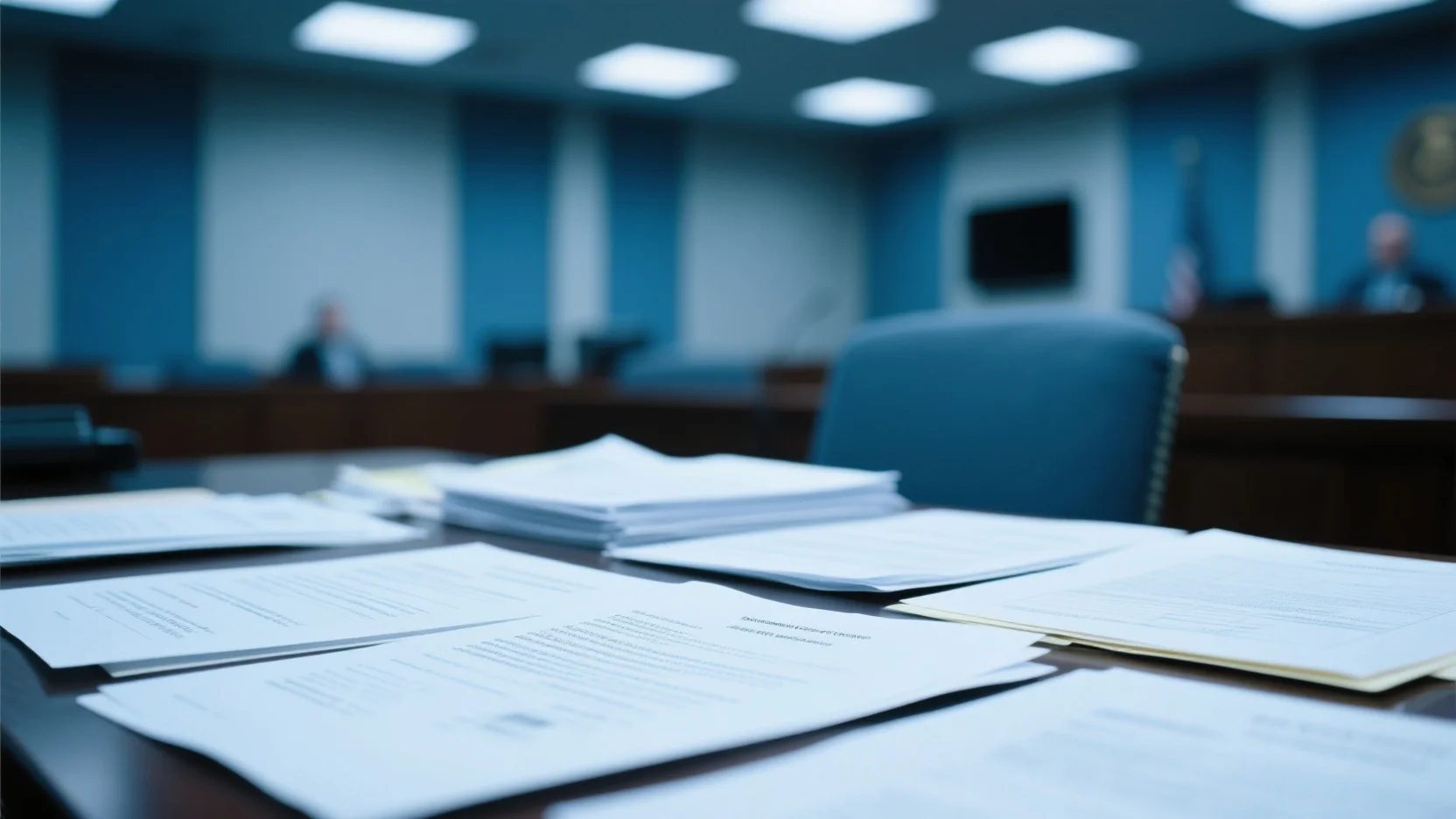
Detection of Hacker Attempts
In the hospitality industry, the threat of data breaches is a growing concern, with a staggering 20% increase in data breaches in 2023 compared to 2022 (SEMrush 2023 Study). Detecting hacker attempts early can significantly reduce the risk of a major data breach and subsequent class – action lawsuits. Here are the key steps hotels can take to detect these threats.
Monitoring for phishing attempts
Phishing is one of the most common methods hackers use to gain access to sensitive information. They send seemingly legitimate emails or messages to hotel employees, tricking them into revealing login credentials or other sensitive data. For example, a hacker might send an email posing as the hotel’s IT department, asking for a password reset.
Pro Tip: Train your hotel staff to recognize phishing emails. Provide regular training sessions on identifying suspicious links, sender addresses, and urgent requests for information.
Regularly reviewing access logs
Access logs record who has accessed the hotel’s systems and when. By regularly reviewing these logs, hotels can identify any unauthorized access attempts. For instance, if an employee accesses a guest’s financial information outside of their normal working hours, it could be a sign of a security breach.
As recommended by industry security tools like McAfee, set up automated alerts for any unusual access patterns. This way, you can respond quickly to potential threats.
Checking for abnormal payment – related activities
Abnormal payment – related activities can be a clear sign of a hacker attempt. For example, a large number of transactions from a single IP address or transactions in unusual amounts could indicate credit card skimming. In a real – world case, a hotel noticed a series of small, unauthorized charges on guests’ cards, which led them to discover a hacker had compromised their payment system.
Pro Tip: Implement real – time payment monitoring. This can help you detect and stop fraudulent transactions before they cause significant damage.
Assessing third – party vendor security
Hotels often rely on third – party vendors for various services, such as payment processing or reservation systems. However, these vendors can also be a weak link in the security chain. A data breach at a vendor can expose the hotel’s guests’ information. For example, if a payment processing vendor’s system is hacked, the hotel’s guests’ credit card information could be stolen.
Industry benchmarks suggest that hotels should conduct regular security audits of their third – party vendors. Ensure that they have robust security measures in place and comply with relevant data protection regulations.
Indirect detection through backups
Regularly backing up data is not only important for data recovery in case of a disaster but can also be a way to detect hacker attempts. If there are sudden changes in the backup data, such as missing files or corrupted data, it could indicate that a hacker has accessed the system.
Try our data integrity checker to regularly scan your backups for any signs of tampering. This interactive tool can help you quickly identify potential security issues.
Key Takeaways:
- Train staff to recognize phishing attempts to prevent unauthorized access.
- Regularly review access logs and set up automated alerts for unusual patterns.
- Implement real – time payment monitoring to detect abnormal payment activities.
- Conduct security audits of third – party vendors to protect guest data.
- Use backups not only for recovery but also for detecting hacker attempts.
FAQ
What is a hotel data breach class – action lawsuit?
A hotel data breach class – action lawsuit occurs when a group of hotel guests collectively sue a hotel due to a data breach. This can involve exposure of private info like credit card details or personal data. For example, in the Marriott case, about 20 million guests sued after a long – running hack. Detailed in our [Factors for Successful Lawsuits] analysis, clear evidence of large – scale data compromise is crucial for such suits.
How to prove negligence in a hotel data breach lawsuit?
According to Google’s official guidelines on data security, proving negligence involves showing the hotel failed to implement industry – standard security measures. First, gather evidence of inadequate safeguards, like lack of regular system updates. Second, demonstrate that these failings led to the data breach. For instance, in the Marriott case, a multi – year hack indicated insufficient security.
Hotel data breach class – action vs. individual data breach lawsuit: What’s the difference?
Unlike an individual data breach lawsuit, a hotel data breach class – action lawsuit allows multiple affected guests to join forces. In a class – action, plaintiffs share legal costs and resources, making it more feasible for those with smaller claims. For example, many Marriott guests joined a class – action, leveraging collective strength. An individual suit is for one person, often costlier and more challenging.
Steps for detecting hacker attempts in a hotel?
- Train staff to recognize phishing emails as phishing is a common attack method.
- Regularly review access logs and set up automated alerts for unusual patterns.
- Implement real – time payment monitoring to spot abnormal payment activities.
- Conduct security audits of third – party vendors.
- Use backups for detecting hacker attempts by checking for sudden data changes. As recommended by industry security tools, these steps can enhance hotel security.

